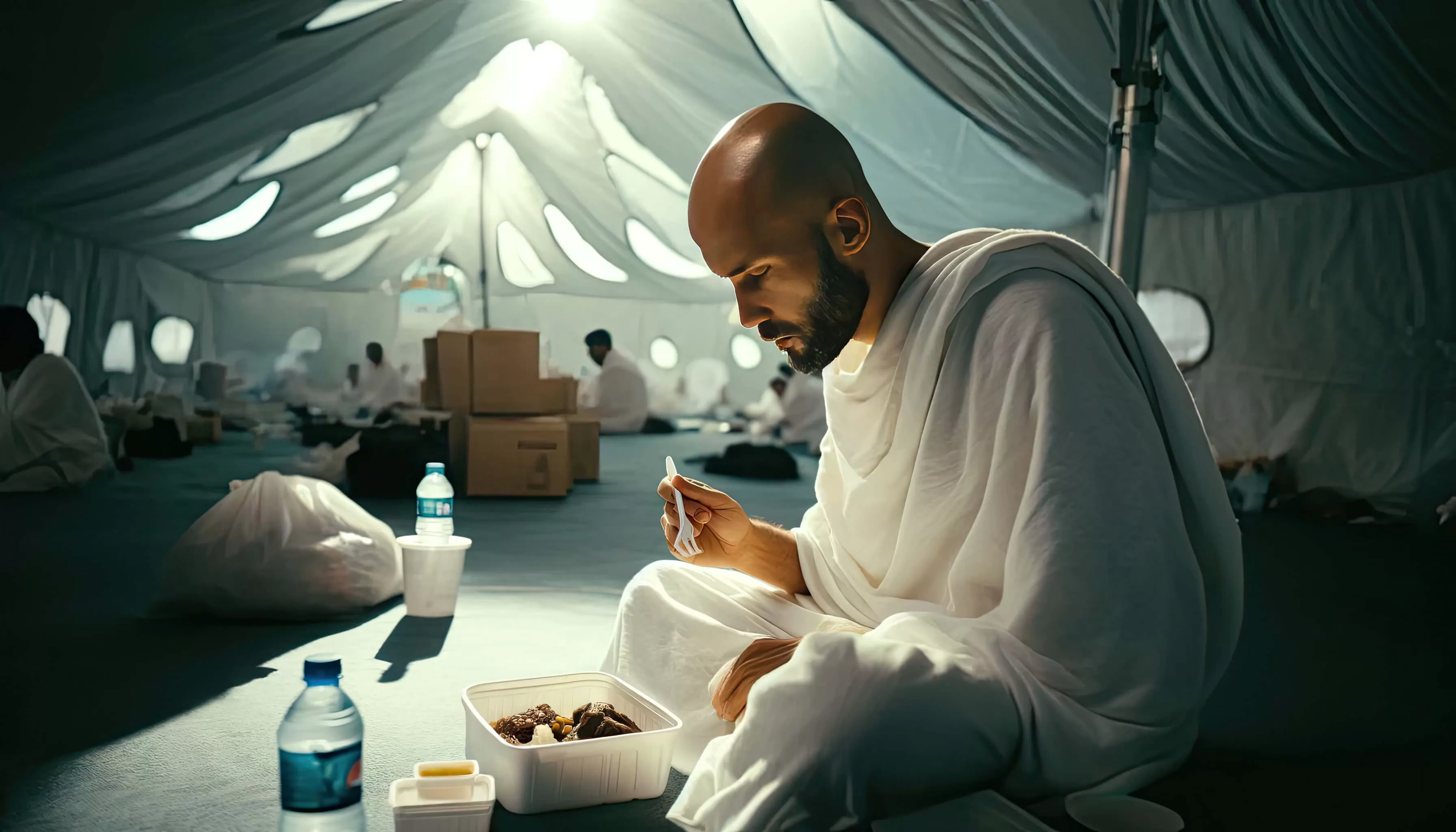How to Manage Food Expenses During Hajj | Easy Tips for Pilgrims

Are you wondering how you can manage your food costs during Hajj without stress, while still eating healthy and staying energized for your worship?
With a little planning and smart choices, you can easily stay within your budget without compromising your health or comfort.
Many first-time pilgrims and families worry about Hajj budgeting, especially when it comes to food. A little preparation can save a lot of money and trouble during your sacred journey.
1. Set a Daily Food Budget
Before you leave for Hajj, sit down and decide how much you can spend daily on food.
It’s better to plan a daily meal budget rather than setting a full-trip lump sum. This way, you can adjust if needed.
It is advisable to set an average daily budget for food around 50 to 60 Saudi Riyals per person per day, covering two meals — lunch and dinner.
2. Understand Food Prices in Makkah and Madinah
Food prices in Makkah and Madinah vary widely, depending on where you eat:
- Budget-friendly restaurants serving Asian cuisine (Indian, Pakistani, Bangladeshi) offer meals like curry, rice, lentils, biryani, and kebabs at roughly 20 to 40 Saudi Riyals per person.
- Mid-range to upscale hotel restaurants or buffets cost around 80 to 100+ Saudi Riyals per person for a more formal dining experience.
- Popular fast food outlets like Al Baik, KFC, McDonald's, and Herfy provide reliable meals at fixed prices, generally around 15 to 30 Saudi Riyals per person.
- Street vendors selling shawarma wraps, falafel, and burgers offer very cheap meals, priced between 5 to 20 Saudi Riyals.
3. Meal Options Included in Hajj Packages
Some Hajj packages include meals as part of the cost, usually providing breakfast, lunch, and dinner.
Choosing a package with included meals can save you from worrying about daily meal expenses, especially if you're on a tight budget.
However, many economical Hajj packages do not include meals. In that case, you need to arrange food by yourself.
4. Bring a Multipurpose Cooker and Basic Supplies
If your package doesn’t include meals, it’s a smart idea to bring a small multipurpose electric pan, rice cooker, or travel cooker from home.
Also, pack some dry food items and snacks like:
- Rice
- Lentils
- Instant noodles
- Oatmeal
- Dry fruits
- Nuts
With these simple ingredients, you can prepare basic, healthy foods like rice, lentils, boiled eggs, sandwiches, and more inside your hotel room without spending much outside.
Additionally, you can purchase fresh groceries (raw items, fruits, vegetables) easily from nearby shopping malls or supermarkets at discounted prices.
5. Maintain Cleanliness and Hygiene
Whether you cook at the hotel or buy food from outside, it is very important to maintain cleanliness and hygiene:
- Always clean the cooking area and utensils after use.
- Store leftover food in the refrigerator to keep it fresh for the next meal.
- If food needs to be thrown away, wrap it properly in a plastic bag and dispose of it in a large dustbin.
- Never leave food uncovered or lying around.
- Wipe down tables and floors regularly to prevent the spread of germs.
Maintaining a clean environment not only shows respect for the facilities but also protects your body from illness and keeps you energetic and healthy throughout Hajj.
Remember, a clean space leads to a clear mind and a healthy body, helping you stay focused on your worship.
Final Thought
Planning your food budget carefully, using smart cooking options, and maintaining hygiene can make your Hajj experience peaceful and worry-free.
Focus your energy on your ibadah (worship), and let simple planning take care of your food needs.
HashTags: #HajjTips #FoodBudget #MakkahFood #PilgrimLife #SaudiArabia #IslamicPilgrimage #TravelTips #BudgetTravel #HealthyEating #Hajj2025






